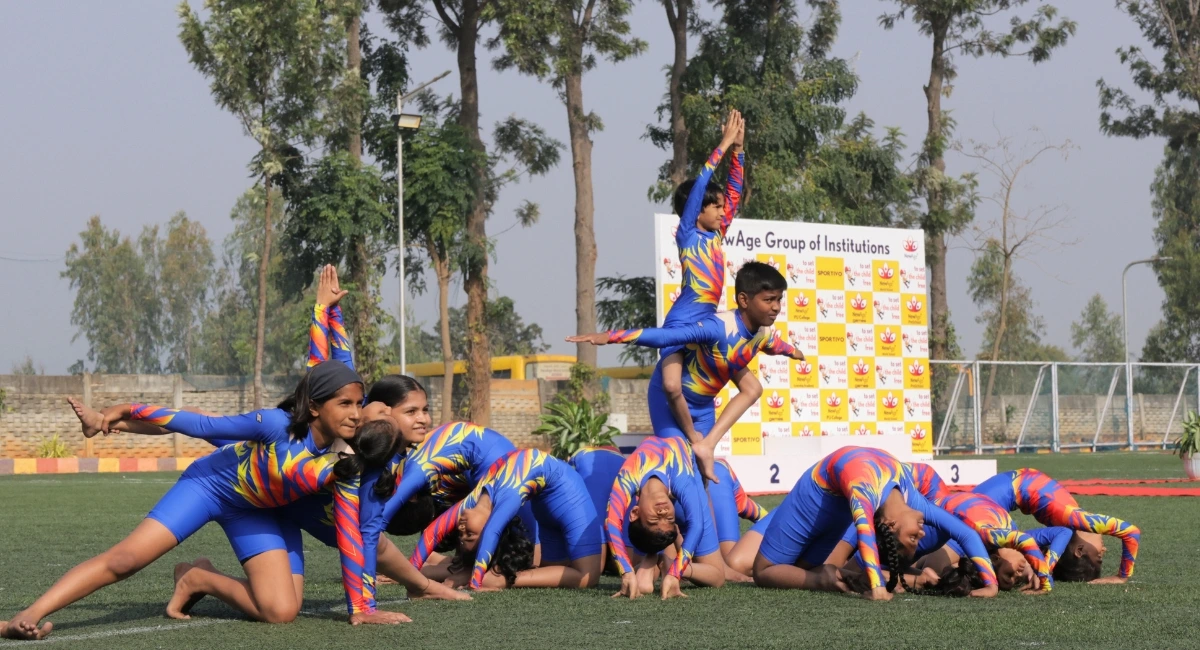5 Extracurricular Activities That Promote Leadership | NewAge World School

Table of content
Introduction
5 Extracurricular Activities That Will Boost Leadership
- Volunteering
- Student Government
- Starting a Club
- Academic Teams or Clubs
- Music and Arts
Conclusion
FAQ
Introduction
Leadership isn't just about standing at the front of the class or giving orders. It's about making good choices, being responsible, and helping others. Children who learn these leadership skills early on are more confident and better prepared to handle life's ups and downs. The good news is that children can learn these skills through fun and engaging extracurricular activities to build leadership skills. Whether volunteering or joining a school club, these activities can play a big role in developing leadership skills in children. Let's dive into five fantastic activities that not only boost leadership but are also a lot of fun!
5 Extracurricular Activities That Will Boost Leadership
1. Volunteering

Volunteering isn't just for adults; it's a great way for children to learn about leadership, too! When children participate in volunteer work for children, they understand the importance of giving back and helping others. Whether it's helping out at a local food bank, organizing a charity event, or even cleaning up the neighborhood park, these activities teach children responsibility, empathy, and the joy of making a difference. Plus, it's a chance to work with other people, solve problems, and take initiative. Imagine a child planning a bake sale to raise funds for a local animal shelter—it's not just about selling cookies; it's about leadership in action!
2. Student Government
Getting involved in student government leadership development is like a real-life training ground for future leaders. Whether running for class president or being part of a student council, children learn to voice their opinions, listen to others, and make decisions that benefit their peers. These roles require them to communicate effectively, negotiate, and sometimes even mediate conflicts. It's a great way for children to learn how to be fair and responsible leaders. Think of it as a mini-government where children get to understand how rules are made and why it's important to have everyone's voice heard.
3. Starting a Club

If your child has a particular interest or passion, starting a club for children can be a fantastic way to develop leadership skills. Whether it's a book club, science club, or even a nature exploration group, starting a club allows children to take the lead in organizing meetings, planning activities, and recruiting members. This experience teaches them how to work with others who share the same interests and how to manage tasks and responsibilities. Plus, it's a fun way to learn! Imagine your child leading a group of friends in a "Young Inventors Club," coming up with new gadgets and presenting their ideas. It's about building confidence and enjoying the process.
4. Academic Teams or Clubs

Joining academic teams or clubs is another excellent way to promote leadership skills in academic clubs. Teams like robotics, mathletes, debate, or science clubs not only challenge the mind but also teach children how to collaborate and lead within their areas of interest. These clubs often involve competitions, which teach children to handle pressure and perform as part of a team. For instance, being part of a debate club can help children learn to think on their feet, articulate their thoughts clearly, and listen to opposing viewpoints—all essential leadership skills. Imagine a child standing up, presenting their arguments with confidence, and winning the debate—now that's leadership in action!
5. Music and Arts

Involvement in music and arts programs, such as choir, band, theater, or dance, can greatly benefit children's leadership skills. These activities require discipline, teamwork, and dedication. For example, being part of a school play teaches children to work together to put on a performance, each person playing their part to create something special. The benefits of music and arts for leadership are immense, as they help children understand the importance of practise, patience, and perseverance. Plus, these activities often involve public performances, which build confidence and the ability to handle pressure. Picture a child leading the choir in a school concert, ensuring every note is perfect—its leadership wrapped in creativity!
Conclusion
Building leadership qualities doesn't have to be a daunting task—it can be fun and engaging! By participating in these youth leadership activities, children can learn valuable skills that will serve them well in school and later in life. Whether through team sports leadership skills, volunteering, or starting a club, each experience contributes to a child's growth and understanding of what it means to be a leader. So, why not encourage your child to get involved in one of these activities? You might just be surprised at the budding leader they become. After all, as the saying goes, "Leaders are made, not born," and it's never too early to start building those essential skills.
Frequently Asked Questions
What are leadership development activities?
Leadership development activities include team sports, student council involvement, volunteer work, public speaking clubs, and organizing school events, all designed to build confidence and leadership skills.
How can you promote leadership as a student?
Students can promote leadership by actively participating in clubs, taking initiative in group projects, and being a role model for their peers through positive behavior and responsibility.
Which activities are associated with a leadership role?
Activities like student government, sports teams, starting a club, volunteering, and participating in academic clubs all offer opportunities for students to take on leadership roles.
What is leadership in extra-curricular activities?
Leadership in extra-curricular activities means taking charge, inspiring others, and making positive contributions within a group or club setting, such as organizing events or leading projects.

















Leave a Reply
Your email address will not be published. Required fields are marked *
Comments
No comments available